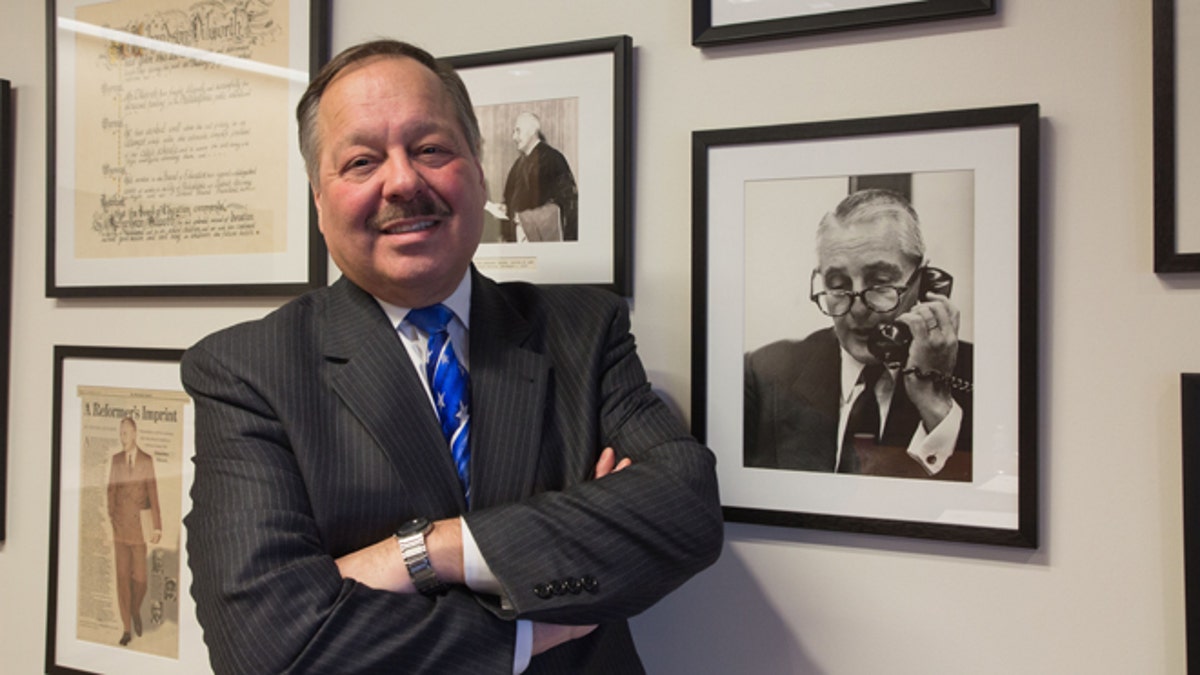
Philadelphia – Nelson Diaz, a lawyer and a former judge, wants to become Philadelphia’s first Latino mayor.
To do that, he’ll have to win the Democratic primary this May against a field with a number of politicians better known than he is. (The general election in November is something of an afterthought, given that about four-fifths of Philly voters are registered Democrats.)
To do so, Diaz will be bucking the city’s stark demographics.
“People have always underestimated me,” Diaz told Fox News Latino.
The former judge is not new to being “first.”
Raised in Harlem, he came to Philadelphia in the early 1970s and became the first Puerto Rican to receive a law degree from Temple University. He also filed a suit that first won Latinos the right to receive Spanish-language ballots at Pennsylvania polling places.
Later, he was the first Latino elected to the Court of Common Pleas in Philadelphia, a position he stayed in for 12 years.
He was appointed general counsel for the U.S. Department of Housing and Urban Development (HUD) by President Clinton.
Now he wants to be mayor, and he’s running against Lynne Abraham, the city’s district attorney from 1991 to 2010; state Senator Anthony Williams, the stronger of two African-American candidates hoping to get the bulk of the support from the city’s largest ethnic group; and James Kenney, who last week resigned as at-large city councilmember representing the entire city, a position he held since 1991.
Not that Diaz minds being the underdog.
“I never cared what people think of me in the first place. All I care about is what I can do in the community,” Diaz said in an interview conducted at the offices of his law firm, Dilworth Paxson.
The firm, as it happens, was founded by Richardson Dilworth, a well-regarded reformist Philadelphia mayor in the 1950s and early 1960s.
Diaz believes that economic development and school reform are the issues that will allow him to stand out from the other candidates.
He wants to grow the small business corridors in many of the city’s neighborhoods. He’s quick to point out he led the Spanish Merchants Association.
But his advocacy and outspoken style have alienated as many as they’ve won over.
“Everyone knows he will call a spade a spade,” says Bernard Anderson, professor emeritus at the University of Pennsylvania’s Wharton School of business, and a longtime collaborator of Diaz’s on economic development issues.
Anderson recalls the time when Diaz took one of the city’s largest banks to task at a public meeting for not making capital available to Latino business owners.
But Diaz also has shown the ability to forge consensus.
Former HUD Secretary Henry Cisneros, told FNL, “We had a host of pending matters that restricted us, paralyzed us. Nelson took it upon himself to create a compromise over a span of years, and we were able to settle legal issues.”
Cisneros added, “He made decisions that changed policy.”
Under Diaz’s watch, 22 discriminatory housing lawsuits secured more than $6 billion in damages. Diaz also helped created HUD partnerships with private developers.
“I don’t do this to say, ‘Look what I did.’ I do it to say, ‘Look what I protected,’” Diaz about his public service.
But in order to win, Diaz needs be seen as more than just a Latino advocate, as his campaign manager, Ian Rivera, believes others see him. He needs to build a wider coalition.
The city’s population is 42 percent black, 37 percent white, 13 percent Hispanic of any race and about 6.5 percent Asian-American, according to 2013 Census Bureau estimates.
Anderson figures that Diaz will need at least 30 percent of the vote to win the Democratic primary. (The current mayor, Michael Nutter, won the primary in 2007 with only 37 percent of the vote.)
For that reason alone, Diaz needs to appeal to white and African-American progressive voters.
Diaz believes school reform as the key to victory.
After decades of neglect and tightened budgets, the city’s public schools are in a state of meltdown. Recently, the district had to close 24 schools due to a $1 billion statewide budget cut.
Other mayoral candidates – such as State Senator Anthony Williams, who is African-American – favor making accommodations for charter schools, a system that some critics claim has siphoned funds away from public education.
“The schools are so bad. I think I have an obligation to come out and do it,” Diaz said. “I think I can get it fixed. I think I can win.”
But he knows he has a large hill to climb.
“People never thought I’d be a lawyer, judge or even graduate [from] high school let alone college,” Diaz told FNL. “I have always been under estimated.”




